
Kalu Yala is situated in Panama's Tres Brazos Valley. (Photos by Emma Sarappo)

Kalu Yala is situated in Panama's Tres Brazos Valley. (Photos by Emma Sarappo)
By Emma Sarappo
Can startups save the world? Jimmy Stice and his employees think so, and their answer is Kalu Yala, a startup “eco-city” in the Panamanian jungle.
Although Stice isn’t a Silicon Valley entrepreneur or a typical venture capitalist, he’s encouraging disruptive models for water conservation, farm to table culinary and housing without walls to build a very different product: an ethical real estate business in Panama’s Tres Brazos valley.
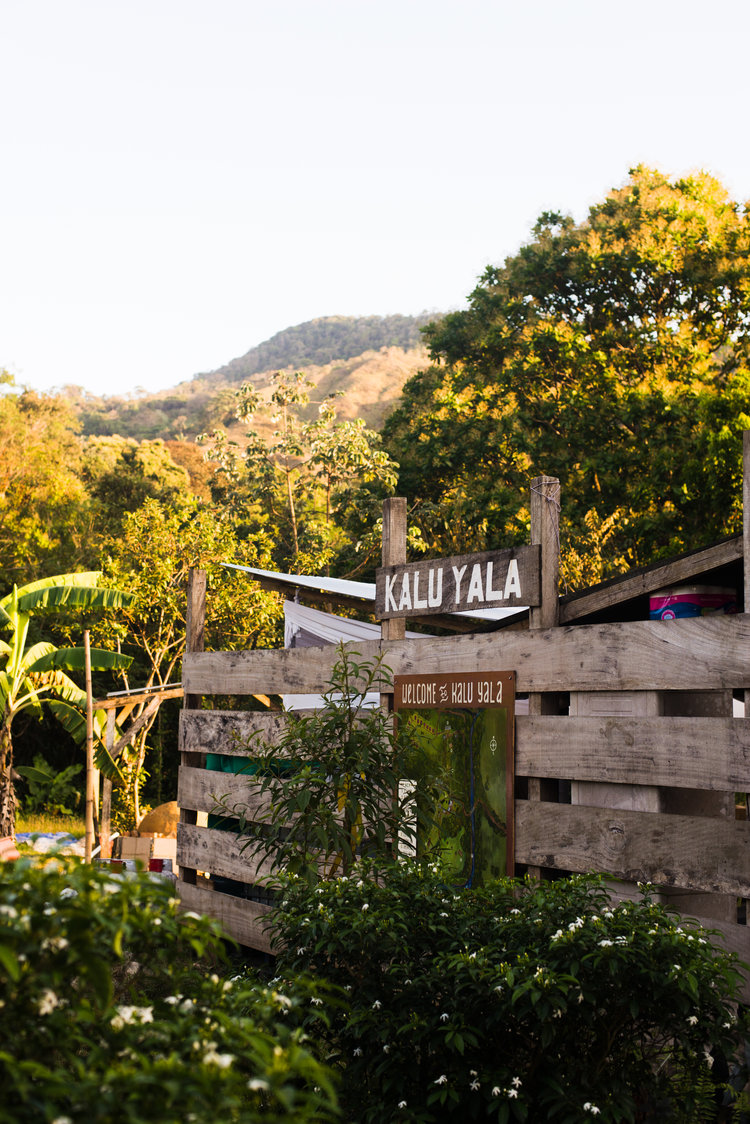
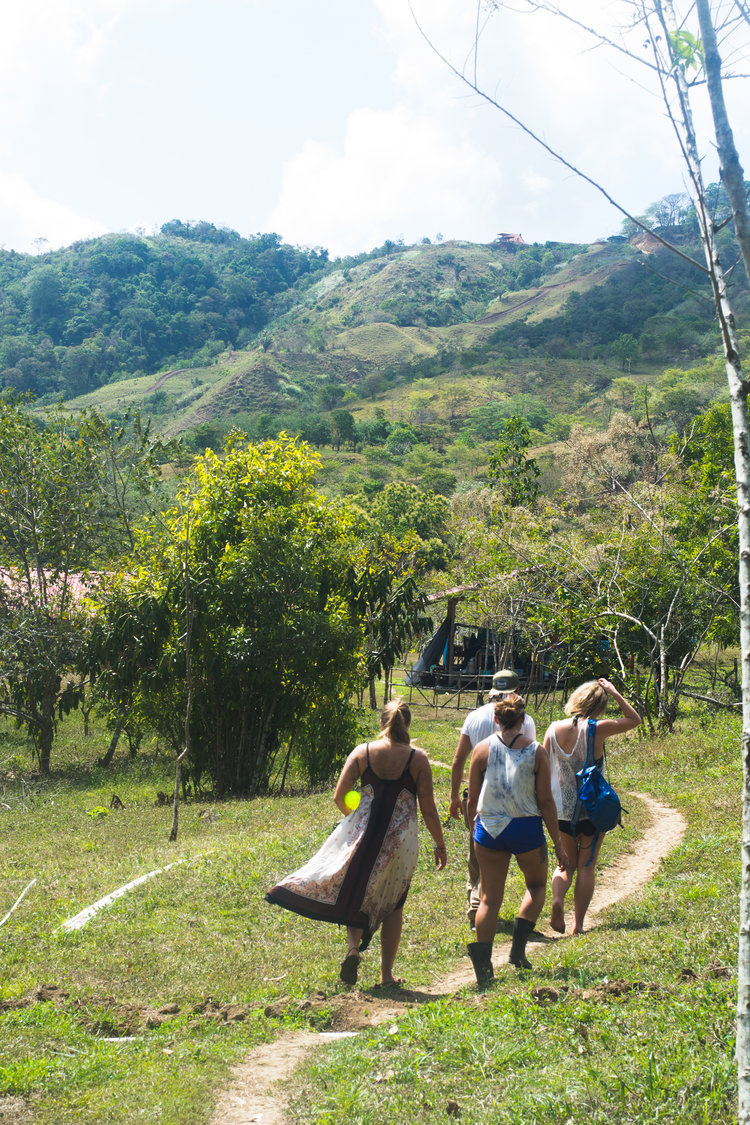
Stice’s model, often called social entrepreneurship in the U.S., seeks to harness the free market to do good, letting businesses solve social problems in profitable ways and trying to meet consumer demand in ethical ways. Stice, Kalu Yala and the business program – one of several internship programs in the community – focus on something they call the “triple bottom line.” Instead of just aiming to make profit, they say, a business and institute (like Kalu Yala) must also promote the interests of people and the planet in its work. Stice said he tried to find a career that would make value for the world, make him happy and pay his bills. That idea of “making value” for entrepreneurs and the world is fundamental to Kalu Yala’s mission.
To further this end, Kalu Yala also founded a business incubator in the first half of 2016. Kalu Yala’s incubator, which incubator director Megan Vose claims is the first in Panama, seeks to help triple-bottom-line-focused companies get started to provide services for Kalu Yala, the neighboring town San Miguel and even Panama City. Overall, according to the head of the business incubator Megan Vose, its job is to help figure out how sustainability can create jobs, both in Kalu Yala and in the wider world. While the financial benefit package it offers to its clients is still being worked out – “the incubator is still very much being incubated,” Vose said – it provides housing, marketing, business advice and a test market (the town of Kalu Yala) as well as low-interest capital loans to the six businesses it is currently cultivating.
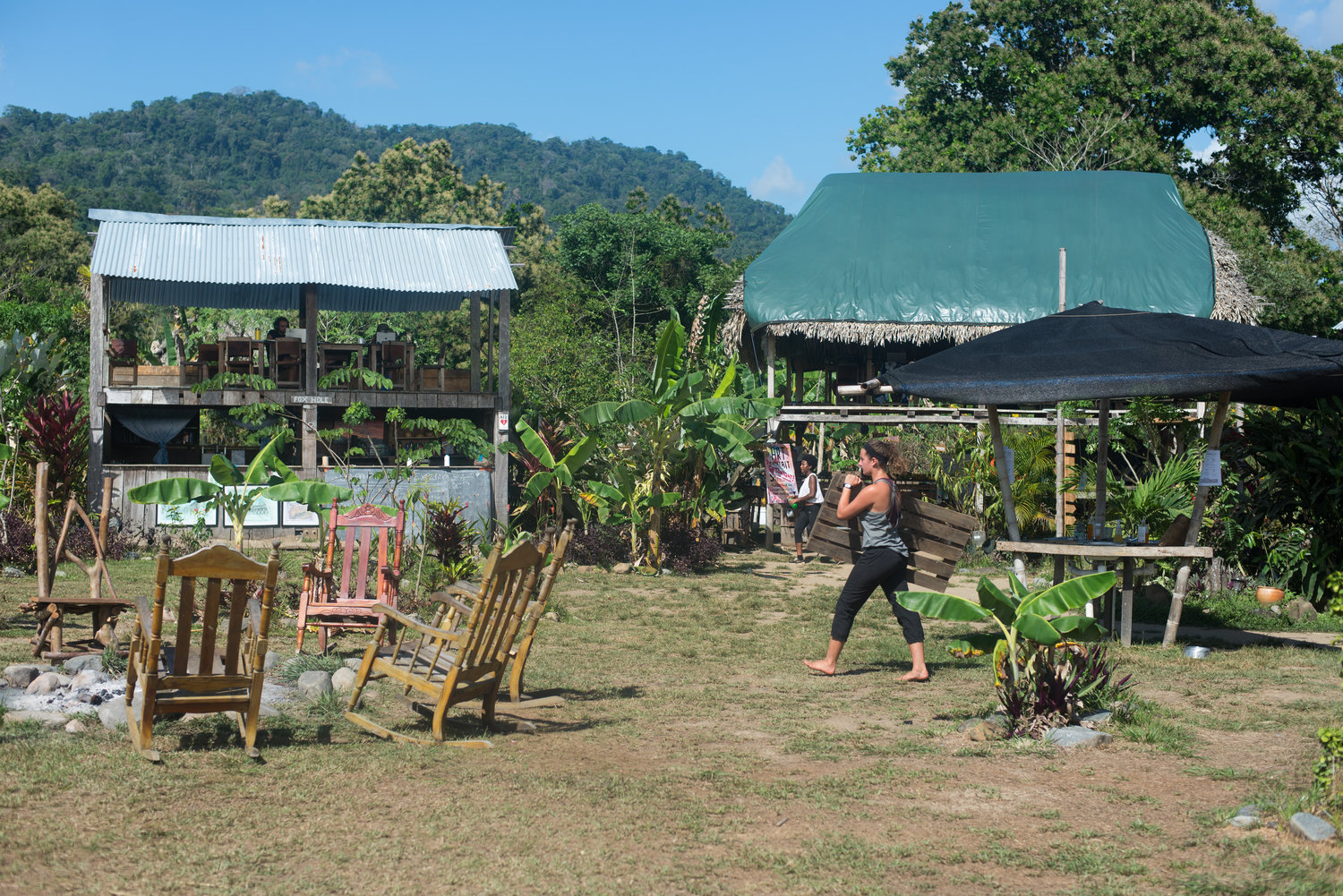

The incubator’s first beneficiary is Willie Dale, an American with a background in brewing and distilling. Dale came to Kalu Yala from Brooklyn at the recommendation of a friend, who was first offered the job Dale decided to take. Once hired, the community members helped Dale construct a living space far from town square where he could experiment with making rum as part of a closed-loop system which recycles wastes, such as methanol. Today, Dale is preparing to legally sell his miel de caña rum, Dale (as in the Spanish ¡Dale!), in Panama.
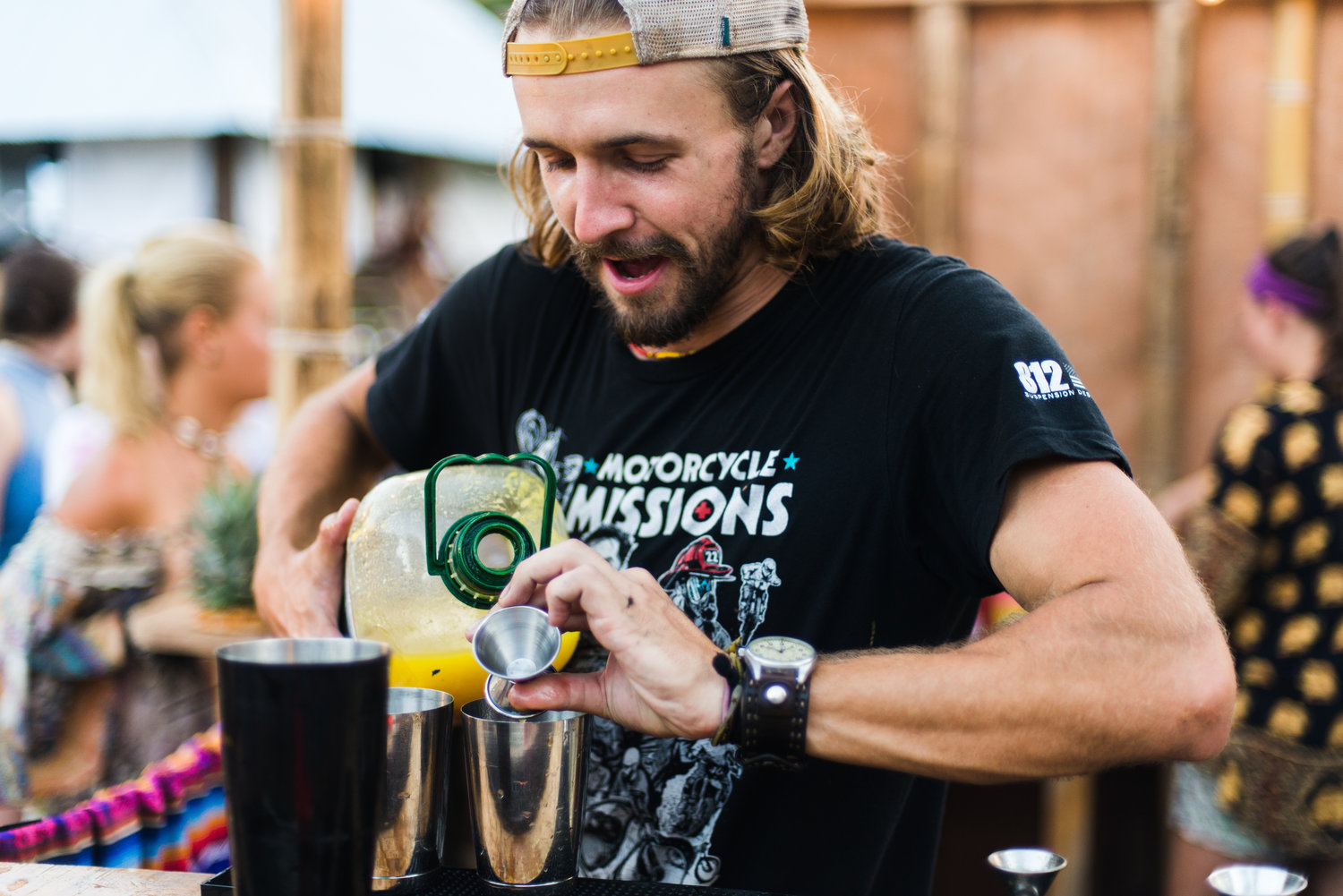
Henry Heyman, 21, has also received incubator support for his business Tres Brazos Outfitters. Heyman, a former Kalu Yala business intern from Boulder, Colo., was inspired to start a sustainable tourism business during his 10-week semester in the valley. Heyman, a lifelong lover of the outdoors, noticed many of his fellow interns were not exploring the natural resources around them and sought to turn his experience hiking and guiding hikes into something profitable and sustainable. He started leading Kalu Yala Weekend Warriors trips for his fellow students. In late 2016, Henry drafted a business plan, secured incubator support and returned to Kalu Yala, seeking to promote “adventure tourism” for travelers who want low impact, educational vacations.
Of course, Kalu Yala’s directors of culinary, biology and farm systems are still learning how to work out the kinks in the model. For one, the triple bottom line isn’t incentivized by anything in the free market except for a business owner’s personal integrity.
Authors such as Gus Speth and Naomi Klein have written extensively about how industrial capitalism has no motive for long-term environmental preservation. Some interns come in ready to fundamentally disrupt the systems they grew up with, believing fully that “business as usual is suicide” for the planet, and are frustrated with the familiar systems that remain in place at Kalu Yala, said sustainability coordinator Clare Bassi.
Esteban Gast, dean of the Kalu Yala educational institute, said he’s often asked if Kalu Yala is a community or a company. He responds “We’re a company that builds communities, right, we’re a community-building company. Communities don’t have payroll, so we have to operate as a company, but our focus when we operate as a company is how can we build really strong community.”
Like any company, its community building services aren’t free. For the summer 2017 session, Kalu Yala will charge its interns $6,495, and tuition will increase to $7,495 by spring 2018. This tuition covers room and board, and scholarships are available to Panamanians and other Latin Americans. As the town and program grow, their costs grow as well, posing barriers for some.
Those who can manage to come, though, spend 10 weeks working on a project and final presentation in the town. The Kalu Yala Institute’s business and entrepreneurship interns learn “startup tactics,” “financial modeling” and other techniques so they can “redesign traditional business models,” according to their website. Under the leadership of entrepreneurship director Zouheir Al Ghreiwati, interns create a product and business model that focus on the “triple bottom line.”
Sometimes the sustainability of their ventures comes into question. Heyman’s adventure trips cater mostly to wealthy Westerners, not native Panamanians, who must travel thousands of miles, mostly by plane, to experience the nature he hopes to preserve. Air travel is extremely carbon-intensive, producing more CO2 and carbon equivalents per mile than any other method of transportation.
Heyman still sees his business as sustainable, however, because he focuses on teaching his clients about environmental concerns and living a less wasteful lifestyle while guiding them. “If you want to see Central America, at least you’re coming on my trip,” he said, pointing out the excessive and wasteful resource usage in this demographic’s typical tourist destinations, like resorts. Sustainability, he stresses, isn’t a straightforward goal. It is most often a series of trade-offs.
The goal of scaling up these business ideas also poses challenges. Scaling a business model to serve a much wider market is a shared goal of tech companies in California and the entrepreneurs of Kalu Yala, but it’s hard to do in ways that are good for the people and planet. Kalu Yala is seeking to grow in the valley – Stice has already sold residential real estate in the town – but it uses its media and marketing teams as a lower-footprint form of scaling. Gast said the point of Kalu Yala’s “start up-y messaging” is to reach people outside of the valley. “We have this global mission because we believe we’re doing all these small changes that have a really big impact. So if we figure out a really interesting way to deal with compost, then that’s something that we want to tell the world,” he said. “So we think very startup-y in the way that we say ‘can this scale? Can we have more people living like this?’”
Manufacturing is an especially tricky field, where environmental concerns can often be a roadblock for new companies hoping to produce goods quickly and cheaply. Shipping is another issue entirely. “I don’t think a lot of social entrepreneurship is scaled,” said Al Ghreiwati. “You can definitely set an industry standard and replicate it.” But he argues that effective, sustainable development, by definition, must be locally sourced and locally focused. For example, one of his spring interns, Gwen Michaux, spent her semester developing a business to make “koozies,” – drink holders, usually for soda or beer – fashioned out of bamboo and crocheted plastic bags.
“She’s able to tell people ‘Hey, here’s a product that could be useful in your day to day life, and this is how it’s made,’ versus a koozie company in the states explaining ‘Hey, here’s all the stuff we dumped into the water to make your koozie, these are all the ink dyes that are being buried and this is how much CO2 emerged. It’s tracking not only your profit but also your waste,” said Al Ghreiwati, her supervisor.
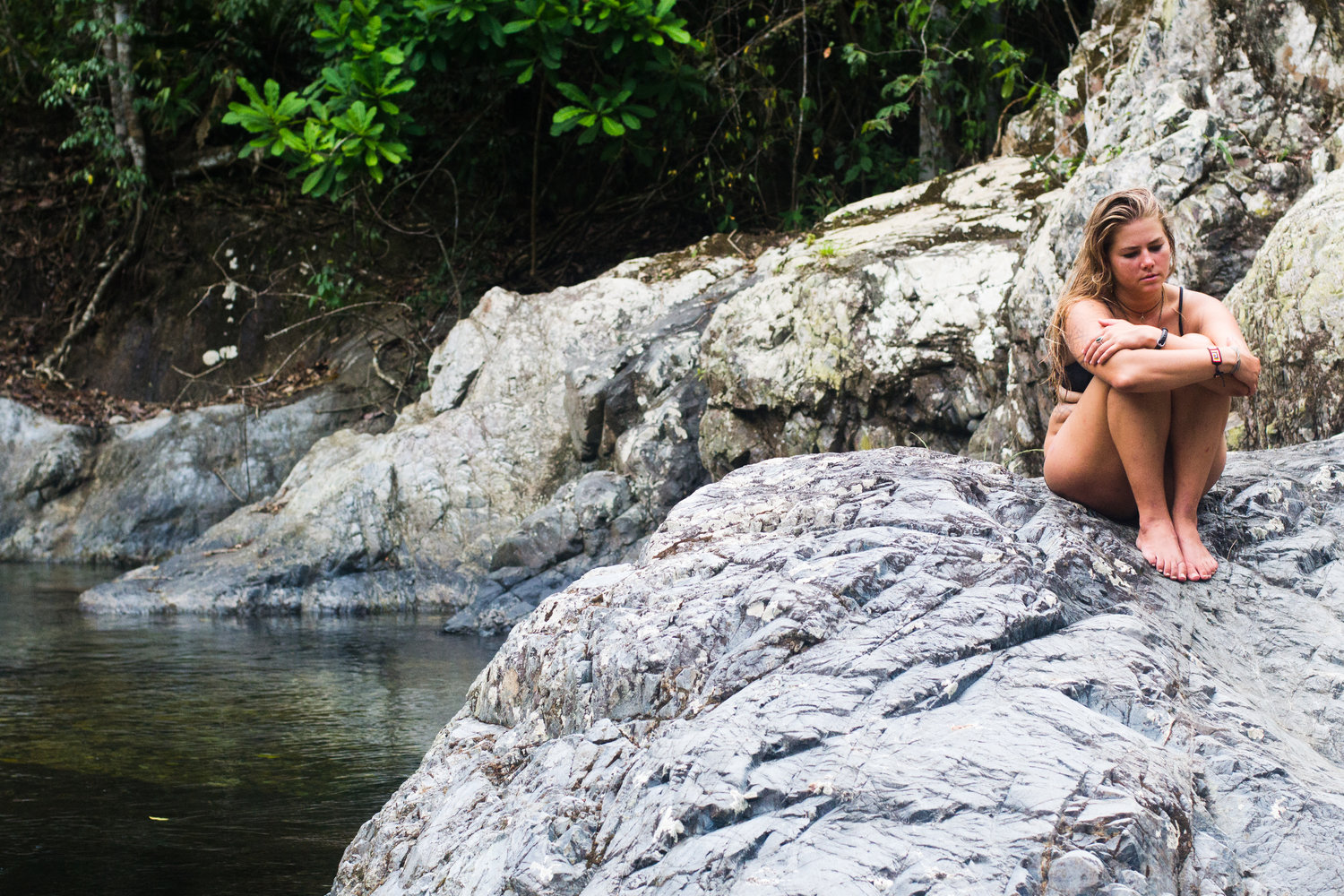
Sometimes what consumers demand and what the planet (or a society) really needs are two different things. The Kalu Yala staff aren’t worried about this, though. Al Ghreiwati believes that eco-consciousness is more than a market trend and educated consumers will continue gravitating towards products and businesses that are good for the Earth. “You vote with your dollar,” he said.
Stice echoed this, calling Kalu Yala’s mission “seducing people who might not care into caring,” then educating them about climate change, environmental issues and sustainable living. According to Stice and Al Ghreiwati, once people know about the issues and fundamentally understand the challenges the planet faces, they will be inspired to take action – one dollar at a time.